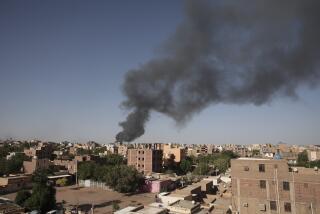Our Vulnerable Embassies
- Share via
After the shock of the twin terrorist bomb attacks on U.S. embassies in Kenya and Tanzania, the urgent priority is aiding the hundreds of injured and the families of the scores of Africans and Americans who died, many in the service of this country. But also at the top of the list is immediately establishing beefed-up security at all the other so-called low-risk African embassies, which, like the bombed facilities in Nairobi and Dar es Salaam, do not meet the stringent standards mandated by the 1986 Diplomatic Security Act.
Indeed, the need for tougher security measures at American installations worldwide should prompt Congress to reexamine a State Department budget that has been cut too deeply to serve the diplomatic purposes of this nation--and that includes protecting the lives of diplomats and other citizens posted overseas.
Because the United States maintains friendly bilateral relations with both Kenya and Tanzania, which are largely devoid of anti-American sentiment, some academic and diplomatic experts suspect that extremists eager to be unpredictable used the clearly well-coordinated terrorist attacks to target U.S. installations in so-called “soft” countries. The targets were more accessible than fortress-like embassies in more dangerous capitals like Amman, Jordan.
The White House promises to find the perpetrators and bring them to justice. Of course. But in order to have a better chance that Friday’s tragedies are not repeated, a speedy assessment--and an action plan--for closing potential breaches of U.S. facilities around the globe should be put in place immediately.
More to Read
Sign up for Essential California
The most important California stories and recommendations in your inbox every morning.
You may occasionally receive promotional content from the Los Angeles Times.













